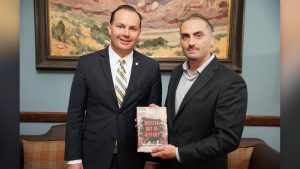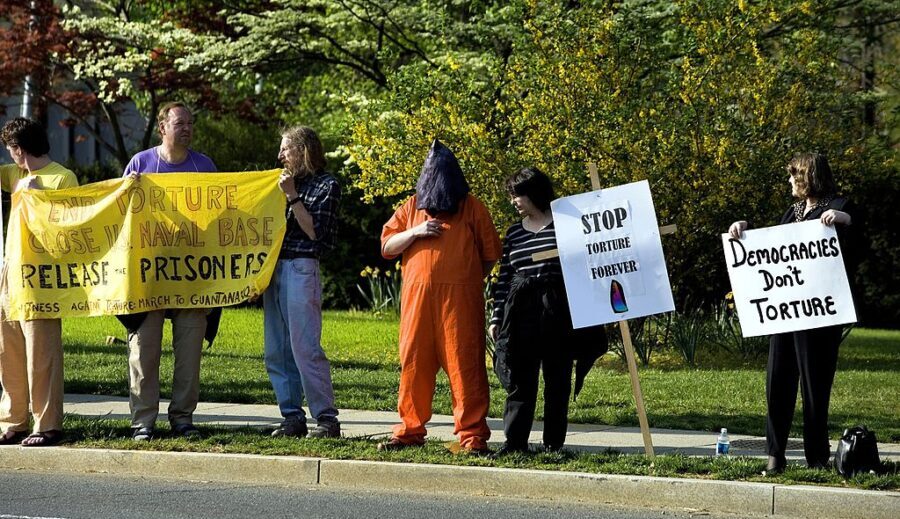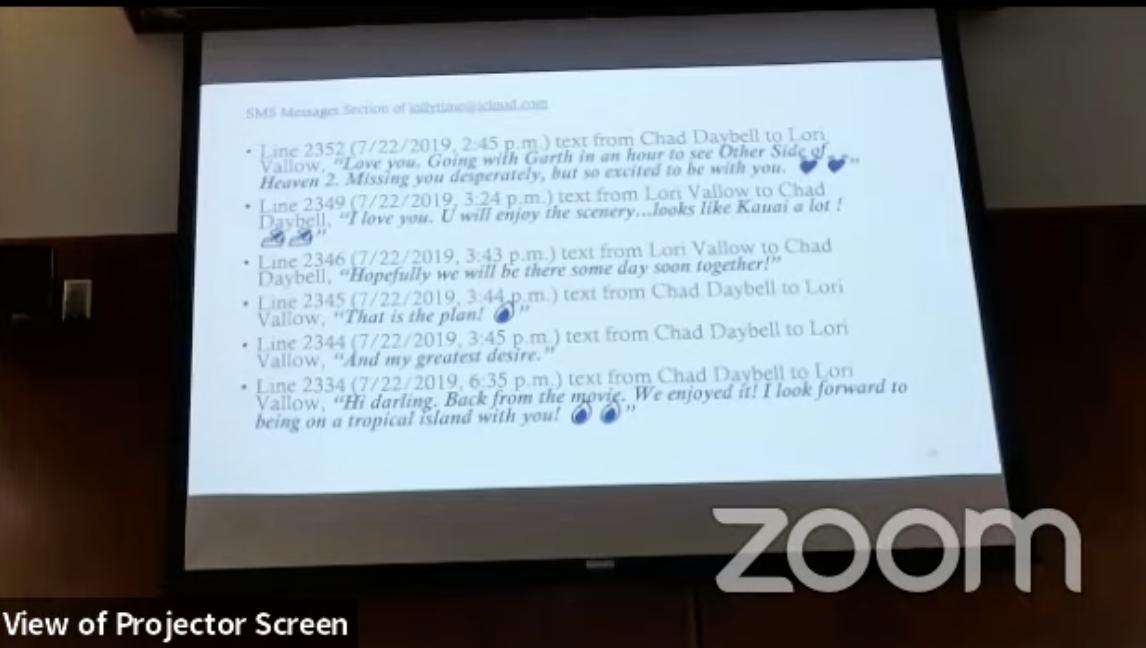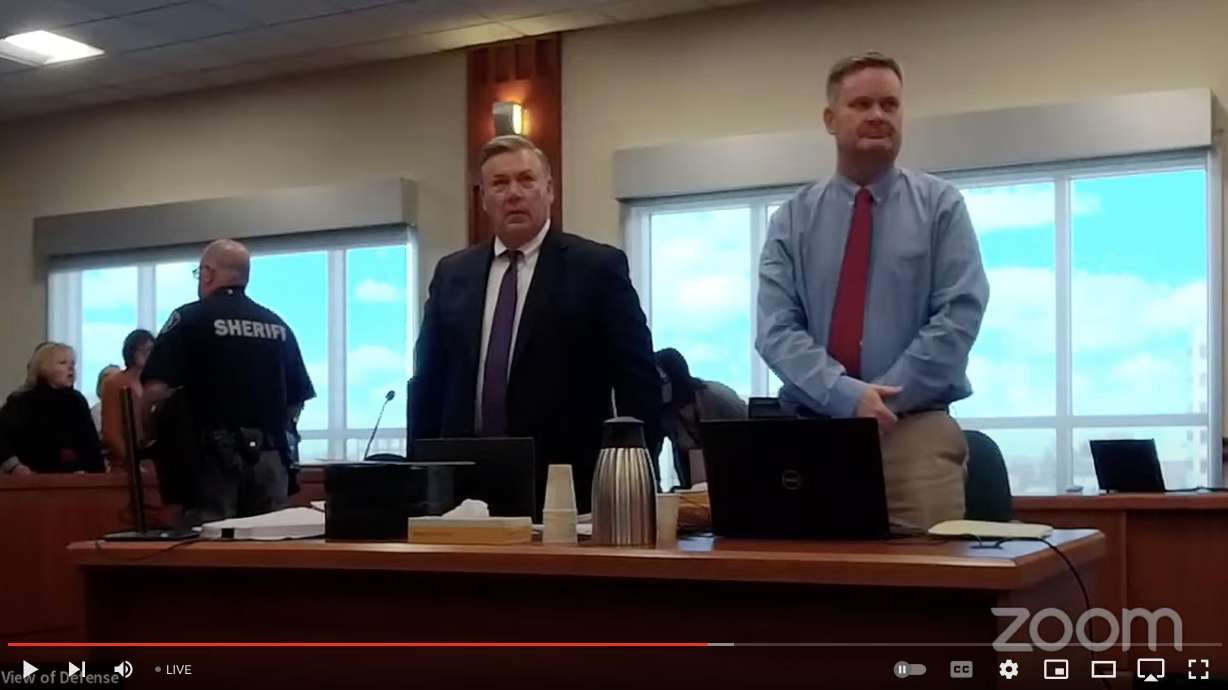Utah Man Fights For Change After 55-Year ‘Cruel’ Sentence For Selling Pot
Sep 4, 2019, 10:40 AM | Updated: Feb 12, 2023, 7:14 pm
SALT LAKE CITY, Utah – Weldon Angelos was certain he would have left federal prison in a casket before finishing his 55-year sentence.
“My projected release date was Nov. 1, 2057,” the Utah man said of his prison term imposed for first-time drug offenses.
Angelos, who was 24 at the time and an up-and-coming music producer, received the half-century punishment in 2004 after being convicted of selling marijuana three times to a government informant.
“My whole life was taken from me just to try to send a message, and that’s wrong,” he told KSL.
The father of three remembered the shock and disbelief he felt sitting in the courtroom as his attorney explained that mandatory minimum sentencing laws required what amounted to a lifetime behind bars without the possibility of parole.
“Congress has essentially said, ‘Rape, murder, terrorism are all bad, but drug dealing’s far worse,’” Angelos said, “and that makes no sense.”
The judge had to levy additional sentences for firearms offenses, even though no weapons were used or displayed during the drug transactions and Angelos had no criminal history.
“When I handed down that sentence, my hands were tied,” Paul Cassell, a former judge, said in an interview with KSL. “So the only thing I could do was go down kicking and screaming.”
Cassell said he wasn’t allowed to craft the appropriate sentence in light of the circumstances. He wrote a cutting opinion about the case, calling the sentence, “unjust, cruel, and even irrational.”
“The 55-year sentence substantially exceeds what the jury recommended to the court,” Cassell went on to write. “It is also far in excess of the sentence imposed for such serious crimes as aircraft hijacking, second degree murder, espionage, kidnapping, aggravated assault, and rape.”
Cassell described the case as one of the most troubling he ever faced during his time as a federal judge and twice implored U.S. presidents to commute Angelos’ sentence.
“I think what really struck me about that case was that Weldon Angelos wasn’t the only defendant who had been subject to these very draconian mandatory minimums,” Cassell said.
Even with vocal advocates, the years ticked by for Angelos inside a federal prison in Lompoc, California.
“I was fortunate enough to have a judge who actually spoke out against it,” Angelos said, “because there are a lot of judges who say: ‘I’m sorry. My hands are tied. Here’s your sentence. Next.’”
The case also caught the attention of Sen. Mike Lee, R-Utah.
“To this day, I have never met anyone or heard of any sentence that is more outrageous than this one,” Lee told KSL. “I’ve told this story hundreds of thousands of times across the country.”
Lee calls it a series of miracles that allowed for Angelos’ sudden release in 2016 — after 13 years away from his family.
At first, Angelos didn’t believe the surprise news when he was asked to provide a phone number to arrange a ride home.
“I was like, ‘For what?’ They’re like, ‘You’re being released,’” Angelos, now 40, recalled. “That right there is probably the best feeling I’ve ever had in my life.”
After receiving the immediate reduction in sentence, Angelos was freed just in time for his son’s high school graduation. He said the overwhelming adrenaline rush lasted for weeks.
Since his release, he’s worked to rally support to change the rigid laws that resulted in his sentence. A big milestone came last year with the first criminal justice overhaul in decades. Co-sponsored by Sen. Lee, the First Step Act gives judges more discretion
“So that when a sentence that would otherwise be mandated by law looks excessive, the judge can invoke something known as a safety valve,” Lee said.
The reform bill was a rare show of bipartisanship in Washington, D.C., and was signed into law by President Donald Trump on Dec. 21, 2018.
“We’re giving judges some flexibility to make sure that the punishment fit the crime,” Cassell said about the changes contained in the legislation.
“I’m forever in debt to Sen. Mike Lee and Judge Cassell,” Angelos said.
Angelos said there is still more work to be done and works full time fighting for justice reform. For starters, he wants the sentencing reforms to be retroactive so that others in his same situation could be freed.
“I’m not going to get out and be bitter and be mad and be mad at the system,” he said. “I’m going to do something about it, and then the 13 years I lost won’t be for nothing.”














